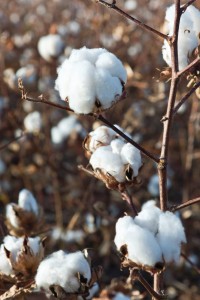*This article is not a substitute for the advice of an attorney.*
This week I was able to visit with the Taylor County Marketing Club about the current hot topics in agricultural law. We talked about several pending Texas cases involving water law and oil and gas law, the GMO labeling debate going on across the nation, and the pending AQHA appeal in the cloning lawsuit. They were a great group and I enjoyed the chance to chat with them about these important issues. Thank you to Robert Pritz and Bill Thompson for setting this up!
Here are a few of the major ag law stories in the news this week.
* Another Nuisance Verdict Against Oil and Gas Producers. On the heels of the $3 million verdict for a Decatur family last month, a second nuisance verdict has been rendered against an oil and gas producer, this time in Crowder v. Chesapeake Operating Inc. A nuisance involves the interference with one’s ability to use and enjoy his or her own property. A Tarrant County Jury awarded $20,000 to the Crowders after finding Chesapeake’s drilling numerous wells in a vacant field behind the Crowder’s home. A drill pad with three wells was located just 165 feet from the Crowders’ back fence. The Crowders, who complained of offensive odors and loud noises also claimed a permanent nuisance–which would have resulted in significantly higher damages, an additional $88,000 were sought–but the jury rejected that claim. [Read more here and here.]
* Water Fight Divides Family. A family feud over is ongoing near Lubbock. James Altman, a cotton farmer, claims that his nephew jumped over his fence and turned off the well Altman used to irrigate his cotton. The nephew, Dany Worsham, claims that the irrigation well made his 210-foot domestic well go dry, which is not an uncommon complaint during the spring when farmers begin irrigating cotton crops. This family dispute illustrates a much larger issue for Texas–the rural versus urban battle for water, which is sure to intensify as population continues to grow. [Read more here.]
* Researchers Aim to Reduce Carbon Emissions and Water Needed for Fracking. Researchers at the University of British Columbia are working on a method of using excess carbon dioxide to desalinate waste water for re-use in the fracking process. This process could both decrease water use and provide an alternative use for waste carbon dioxide produced by natural gas flaring and operation of on-site generators. Researchers claim that if the technology were applied across Alberta in tight oil and shale gas extraction, it could reduce carbon dioxide emissions by more than 1 million metric tons per year and reduce freshwater use by more than 500,000 gallons per year. [Read more here.]
* Arkansas Farmers v. Feds in Wapanocca Wildlife Refuge. The Delta Farm Press told the story of wheat farmers Jonathan and Bob Driver. The Driver family has farmed federal land in Arkansas for four generations. At one time, the Drivers farmed 1,200 acres in the refuge. Currently, they farm 500 acres on leases with the U.S. Fish and Wildlife Service. Last fall, the FWS proposed to decrease their lease to only 50 acres. [Read article here.]
* Kroger Sues Jensen Farms Auditor and Distributor. Kroger Food has filed a cross claim against auditing form Primus and food distributor Frontera Produce Ltd. over the death of a Colorado man who contracted listeria after consuming tainted cantaloupe from Jensen Farms. Two weeks before the listeria outbreak began, Primus gave Jensen farms a 96% pass rate on a food safety audit. [Read more here.]












